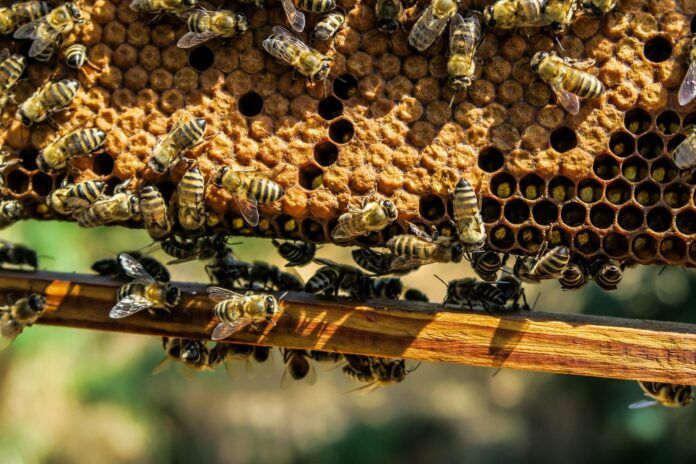A new chemical might unlock new treatment for mites that decimate honey bee colonies at local apiaries.
The discovery from Simon Fraser University (SFU) would treat varroa mites. They say these pests infiltrate colonies, take bites out of the bees and leave them vulnerable to disease and injury.
Rachel Halliwell, owner of Home Grown Bee on Vancouver Island, says the mites are about the size of poppy seeds and can spread deformed wing virus.
Halliwell adds viruses like these can wipe out a colony in a season if the mites are not managed.
The issue for beekeepers extends worldwide, according to SFU. Halliwell says preparation for these mites is key to keeping colonies alive, especially during winter.
“You’d be hard pressed to find a beekeeper that doesn’t have varroa mites,” said Halliwell. “We’re constantly talking about integrated pest management, which is possibly monthly checks for mites to see if there’s high mite load and different techniques to ensure the mites are reduced.”
Halliwell says there are a few treatments for the mites out at the moment. Techniques to check for mites include putting a 300 bee sample in a sugar jar and shaking it, causing the mites to fall off.
Chemical treatments can also include formic acid, hop guard, and oxalic acid. The issue for beekeepers is that mites are starting to become resistant to some treatments, according to Halliwell.
The university says they have discovered a new chemical that is so far working well in clinical trials. They add damage to the bees has been minimal, an aspect that is very important for beekeepers.
“Our goal is always to ensure the health of the colony persists so we don’t want to use anything too harsh that kills our bees or affects them in a negative way,” said Halliwell.
SFU’s chemical, named 3C36, is currently being tested in the Lower Mainland in about 40 different colonies. So far, chemistry professor Erika Plettner says the results have been encouraging based on what falls onto sticky test sheets from the hives.
“The sticky sheets under the hives help us take a snapshot of what’s falling down and we can take them back to the lab, put them under a microscope and count them,” said Plettner. “It’s very promising. We have noticed that our compound does cause greater mite fall than the control group.”
Plettner adds if results continue to run smoothly, the university will take the product to get federal approval and look for licencing partners.
With honeybees being crucial to ecosystems across the country, Halliwell hopes the new treatment could allow for another method of combating the mites.
“They’re really important to our food security, and unfortunately it’s management most beekeepers have to incorporate into their practice,” said Halliwell. “Any help we can get, that would be great.”
Halliwell adds provincial inspectors along with bee clubs can help bee keepers manage disease control, check for mites and answer questions.




